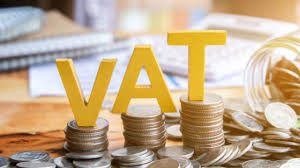By Esther Agbo
The Federal Government of Nigeria to implement a significant increase in the Value Added Tax (VAT) rate from its current level of 7.5 percent to 15 percent.
This decision, part of a broader strategy to bolster local revenue generation, aims to enhance public financial stability amid ongoing economic challenges.
According to a document from the Ministry of Finance, the government seeks to address its persistent revenue deficits by improving tax compliance and broadening the tax base.
The document emphasises the necessity of strengthening tax administration and enhancing corporate income tax compliance as essential components of this initiative.
It states, “Addressing low domestic revenue mobilisation through various measures, including strengthening tax administration and improving tax compliance, particularly in corporate income tax (CIT), an increase in the value-added tax (VAT) rate and broadening the tax base. Progressively increase the VAT rate from 7.5 percent to 15 percent.”
The tax-to-GDP ratio in Nigeria stands alarmingly low at 10 percent, one of the lowest in the Sub-Saharan region as of 2023. With plans to raise this figure to 18 per cent the average for major African economies the proposed increase in VAT is seen as a crucial step toward achieving this goal.
This anticipated 100 percent hike in VAT comes just four years after its last adjustment in 2020. However, the timeline for this increase remains uncertain.
President Bola Ahmed Tinubu has prioritised tax reform since taking office, establishing a fiscal and tax reform committee to overhaul tax legislation and administration.
The committee’s recommendations include a new withholding tax regime designed to alleviate the burden on small businesses and certain sectors like agriculture and manufacturing, thereby fostering a more equitable tax environment.
The idea of raising the VAT rate has sparked considerable debate. Last month, amid public backlash including criticism from former Vice President Atiku Abubakar Finance Minister Wale Edun publicly refuted rumors of an impending VAT increase to 10 percent.
Despite this, international organisations such as the World Bank have advised the Nigerian government to raise the VAT rate to enhance non-oil revenue streams.
The World Bank’s Nigeria Development Update report highlights the potential benefits of increasing the VAT rate, suggesting that such a move could create additional fiscal space. The report further calls for the removal of exemptions on petrol to comprehensively improve non-oil revenue generation.

